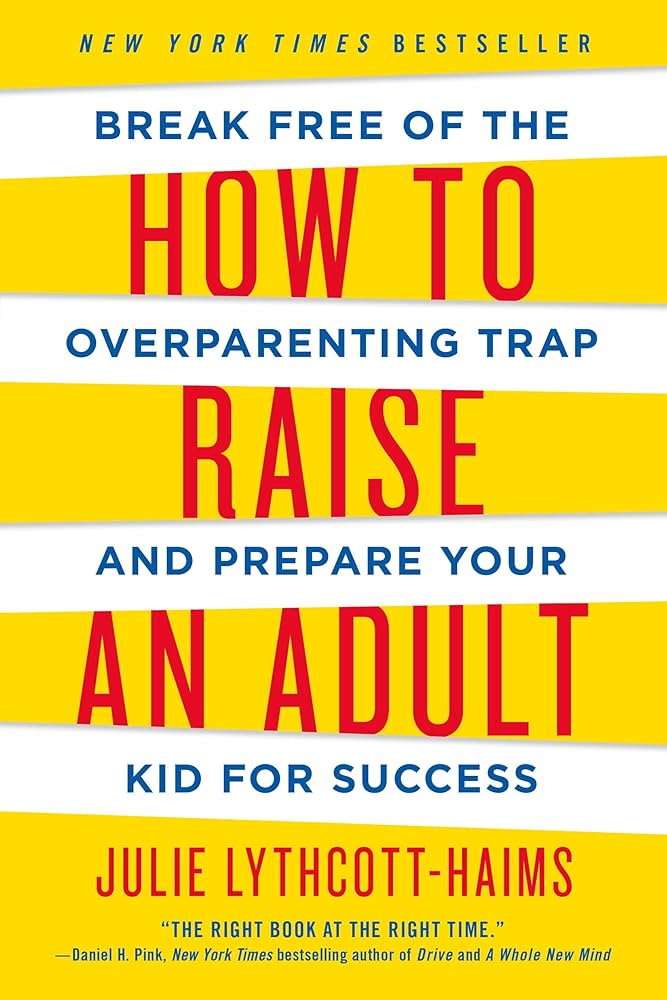
How to Raise an Adult: A Comprehensive Guide by Julie Lythcott-Haims
Introduction
Raising children in today's fast-paced, competitive world can be a daunting task. In her insightful book, How to Raise an Adult, Julie Lythcott-Haims offers a fresh perspective on parenting. This comprehensive guide explores the key concepts and practical advice presented in the book, focusing on raising self-sufficient and resilient children.
Understanding Overparenting
What is Overparenting?
Overparenting, also known as helicopter parenting, refers to parents who are excessively involved in their children's lives. This can hinder children's ability to develop independence and problem-solving skills.
Effects of Overparenting
- Stunted Growth: Children may struggle to make decisions independently.
- Increased Anxiety: Constant supervision can lead to heightened stress and anxiety in children.
- Lack of Resilience: Without facing challenges, children may not develop the resilience needed to cope with life's ups and downs.
The Four Tenets of Raising an Adult
1. Teach Life Skills
Teaching children essential life skills is crucial for their development. These skills include cooking, cleaning, managing finances, and basic self-care.
Table 1: Essential Life Skills by Age Group
| Age Group | Essential Life Skills |
|---|---|
| 2-4 years | Basic hygiene, picking up toys |
| 5-7 years | Simple cooking tasks, setting the table |
| 8-10 years | Laundry, basic first aid |
| 11-13 years | Budgeting, grocery shopping |
| 14-18 years | Advanced cooking, managing bank accounts |
2. Allow Failure
Allowing children to fail is essential for building resilience. When children face setbacks, they learn to overcome obstacles and develop perseverance.
3. Develop Self-Efficacy
Encouraging self-efficacy involves helping children believe in their ability to accomplish tasks and achieve goals. This can be fostered by:
- Setting realistic goals
- Providing opportunities for independent problem-solving
- Offering praise for effort rather than just success
4. Teach Decision-Making
Helping children develop decision-making skills is vital for their independence. This can be achieved by:
- Involving them in family decisions
- Encouraging them to weigh pros and cons
- Allowing them to experience the consequences of their choices
The Role of Parents
Be a Guide, Not a Savior
Parents should act as guides rather than saviors, allowing children to navigate challenges on their own while offering support when needed. This approach helps children build confidence and autonomy.
Foster a Growth Mindset
Encouraging a growth mindset involves teaching children that their abilities can improve with effort and practice. This mindset fosters a love for learning and resilience in the face of challenges.
Table 2: Fixed Mindset vs. Growth Mindset
| Aspect | Fixed Mindset | Growth Mindset |
|---|---|---|
| View of abilities | Static, unchangeable | Malleable, can be developed |
| Response to failure | Avoid challenges, give up easily | Embrace challenges, persist |
| Effort | Seen as fruitless | Seen as a path to mastery |
Practical Tips for Parents
Encourage Independence
Promote independence by gradually increasing the responsibilities given to children. This helps them develop confidence and competence.
Set Boundaries
Setting clear boundaries is essential for maintaining a balanced approach to parenting. Boundaries help children understand expectations and develop self-discipline.
Model Behavior
Children learn by observing their parents. Modeling positive behaviors, such as effective communication, problem-solving, and empathy, is crucial for their development.
Conclusion
Julie Lythcott-Haims' How to Raise an Adult provides invaluable insights into fostering independence and resilience in children. By teaching life skills, allowing failure, developing self-efficacy, and guiding decision-making, parents can help their children become confident and capable adults. Embracing these principles can lead to a more balanced and fulfilling parenting experience.
For more information on parenting and child development, visit our website at Read Review Talk and check out our blog.
References
Lythcott-Haims, J. (2015). How to Raise an Adult: Break Free of the Overparenting Trap and Prepare Your Kid for Success. Henry Holt and Co.
Postscript
By incorporating these strategies into your parenting approach, you can ensure that your children are well-equipped to navigate the complexities of adult life. Embrace the journey of raising an adult with confidence and compassion, knowing that you are helping your child build a strong foundation for the future.



